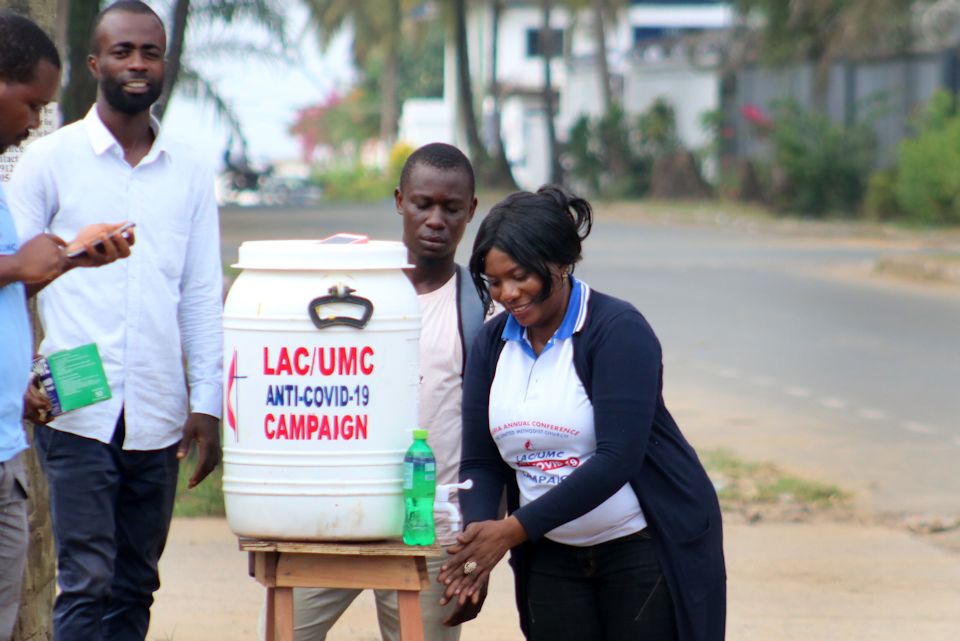Special report by Dr. Muriel Nelson, chair of COVID Emergency Response for the Liberia Conference. Deaths, so far, are low. She and the committee hope to keep it that way.
KAY DEMOSS
Senior Content Editor
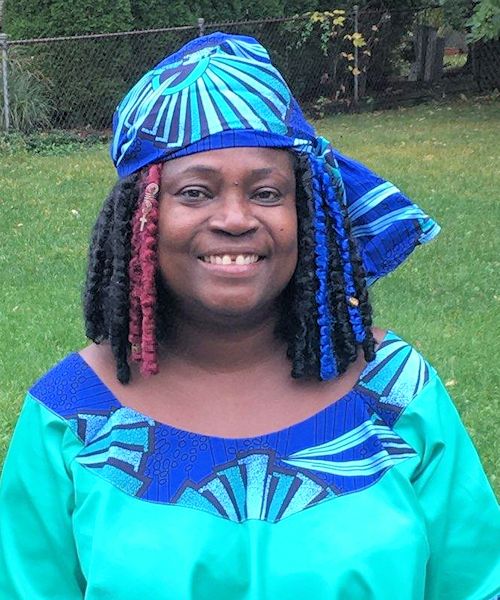
For eight months, COVID-19 has dominated the news here in the U.S. Except for an occasional glimpse of how the pandemic is changing lives internationally, much of the headlines have focused on these 50 states. But God’s people everywhere are having to deal with the virus in their own context. People like Dr. Muriel V. Nelson.
Dr. Nelson is currently in Michigan visiting her sons, who are students at Wayne State. She will soon leave Detroit to go back to Liberia, where she serves as the COVID Emergency Response Committee chairperson. Bishop Samuel J. Quire, Jr. appointed her to that leadership position in the Liberia Conference of The United Methodist Church in June 2020.
Challenges are many
In the spring of this year, Muriel first acted as the chair of a Task Force that released their report in June. “We couldn’t wait for COVID to become a crisis,” Muriel recalls. Funding was received from the United Methodist Committee on Relief (UMCOR) and the Michigan and Illinois conferences. Their task was to raise awareness and mobilize resources. The task force set up handwashing stations, distributed nose masks, soap, and disinfectant. Food distribution was 72% of the budget was spent on food distribution. After three month’s work, the Conference transitioned the task force into a standing committee. Through those early days, Bishop Quire encouraged all United Methodists to observe the protocols and “admonished everyone to be hopeful about the situation because God was in control.”
“When we started, it was a bit scary. We were looking at news around the world and feared that COVID would come to Liberia,” Muriel remembers. “We worried our health system would not be up to the task.” The President of the nation, then Bishop Quire, called for a lock-down, but some churches continued in worship because there was no sickness in their area. It was a big challenge to get people to stay in, especially older people who came outdoors to beg for food on the streets.” She also reports it is hard to get people to wear masks. “Some people just don’t trust that COVID is in Liberia,” Muriel observes.
During the Ebola crisis in 2014-16, 4,800 Liberians died of the disease. To date, there have been 1,419 confirmed cases of COVID in Liberia and 82 deaths. “This is not like Ebola,” Muriel continues. “The expectation was that people would be falling and dying on the street. So far, we have not seen mass illness with COVID.”
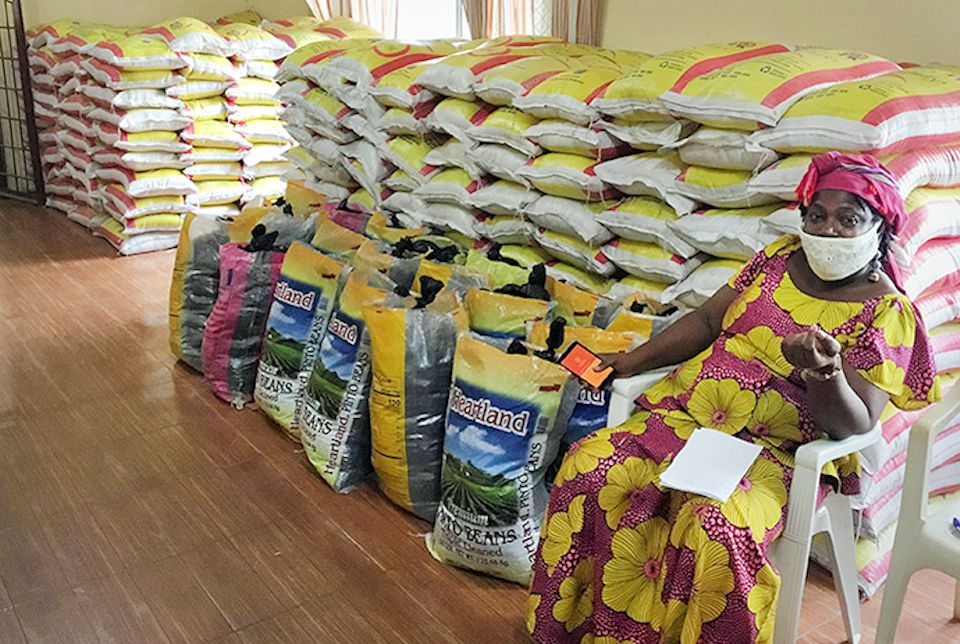
Nonetheless, it is very real. Muriel herself fell ill to COVID and was hospitalized for a week. “I know what I had to deal with,” she states. “I never felt sick like that in my entire life. I had malaria medications and pain killers and used those at home. Then one day, I said, ‘I cannot stay home any longer’ and rushed to the hospital.” The doctors credit her recovery to her strong immune system. She followed protocols – wearing a mask and washing her hands — and did not infect either her family or the United Methodist Women with whom she had close contact. Muriel serves as president of the Liberia Conference UMW.
The work ahead
Malaria. Typhoid. Ebola. These were plaguing the people of Liberia long before 2020. Muriel believes the people’s experience with these realities of life may make them stronger in the face of COVID-19. “Perhaps we can bounce back because of our experience and the mercy of God,” she says. “But you don’t want to wish COVID on your worst enemy. It is a bad feeling like an army has taken over your whole body. It is worse than Malaria.”
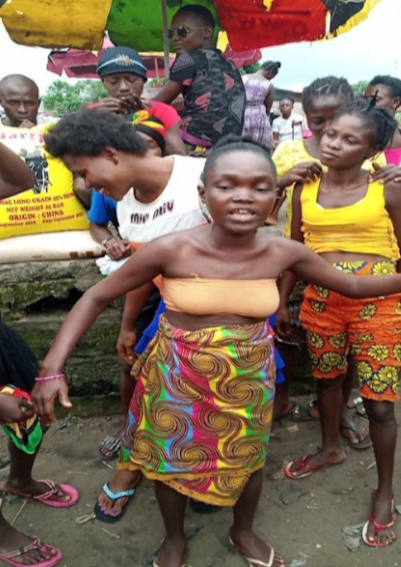
Muriel rejoices that they “overcame the rainy season. Things could have gotten much worse. We know the sun is coming, and that’s a plus.” (Rainy season runs May-October in Liberia.)
The COVID Emergency Response Committee plans to continue its efforts to raise awareness and sensitize people to the pandemic threats. “It is not in our best interests that the Liberian people still do not believe that COVID is in the country,” she reflects. They also will continue to stress the importance of wearing masks and washing hands.
“We must teach about social distancing. We cannot shake hands and hug as we love to in Africa!” she notes. “We need to learn with COVID as we have learned to live with Malaria and Typhoid. COVID is for real.” The committee plans a district-by-district approach to engagement.
In addition to messaging, the committee will be engaged in the training of both clinicians and non-clinicians. More health workers are needed in communities across the nation if the populace is to remain safe.
At present, there is one United Methodist Hospital at Ganta and five UM clinics in Liberia. Muriel says, “There is too wide a gap in the ratio of doctor to patient in Liberia. We need to ensure that doctors and nurses are safe because we can’t lose any one of them. There are already very few.”
Equipment is in short supply, as well. Muriel explains. “My friend knew a patient in the top hospital in Monrovia. She said they had to take the oxygen off him to put on another patient.” One ventilator in the top hospital. “If a patient gets to that point, doctors and nurses can’t help them.”
Fundraising continues to purchase the PPE that will be needed in United Methodist clinics: gloves, gowns, face shields, masks, buckets, and sanitizers. “Our health workers need protective gear so they can go out and do their duty,” Muriel says. These are all things that can be purchased in-country, so monetary gifts are most needed. (See Liberia Ministry Partnership.)
Hope for the future
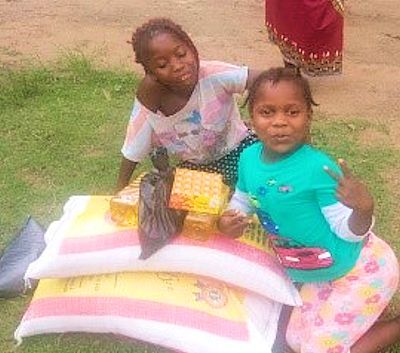
So far, Liberia’s COVID deaths are low, and Muriel Nelson and the COVID Emergency Response Task Force intend to keep it that way. “The United Methodist Church needs to be there, not just in preaching but where the people are hurting,” Muriel asserts. Complacency is not in order. “It only takes one person. It only takes a spark, just like that song says.” Because one person can infect a whole village of people unaware, Muriel is determined to help rural churches learn to welcome and receive newcomers without being endangered. She adds, “COVID doesn’t need a VISA or a passport. We will do what it requires to keep COVID low.”
Bishop Quire sends greetings to Michigan. “The bishop wanted me to express our appreciation to The Michigan Conference for its support,” Muriel says. “When people could not come out of their homes to buy food, we used your gift to purchase it and reach out to children and pregnant women across our districts.”
Indeed, Dr. Muriel Nelson is a person who appreciates the global threat and blessing of these days. “I am in Michigan,” she says, “because I was worried about my boys in Detroit, with the high COVID-19 spread.” She will soon return to Liberia, celebrating the covenant partnership with The Michigan Conference with a grateful heart. “Even in your own crisis, you were still doing ministry!” Muriel concludes.
Last Updated on September 20, 2022

